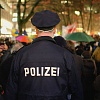Saudi Arabia: Felix or Deserta?
In
Login if you are already registered
(no votes) |
(0 votes) |
Ancient Romans used to call ‘Arabia Felix’ (‘Felicitous Arabia’) the region which broadly corresponds to current Yemen. ‘Arabia Deserta’ (‘Deserted Arabia’) was instead the name for what is now mainly Saudi Arabia’s territory. The Romans could not imagine that, especially thanks to oil revenues, the ‘deserted’ part of the peninsula would have become the wealthier and dominant one.
Yet circumstances in the Middle East are changing fast. Russia has intervened in Syria and Iraq, Turkey is waiting for new elections, and Iran has been re-habilitated with the ‘nuclear deal’. Regional security and politics, however, cannot abstract from Saudi Arabia. Not only are the Al-Saud family ‘Custodians of the Holy Mosques’ and presiding over the world’s second largest oil reserves; as of 2014 (IISS, 2015), Saudi Arabia is ranked third in the world for military expenditures, with an impressive 80.8 billion $. Meanwhile Britain, which on 23 January had decided to fly the Union Jack half-mast because of King Abdullah’s passing, has just withdrawn a £ 6 Billion training programme for the Saudi police. What is happening in the highly secretive kingdom?
King Salman, 79 years old, a member of the powerful and conservative ‘Sudairi’ faction, might be the last ruler of the first generation, that of the children of the founder, Ibn Saud. Such generation has transformed the country in an oil superpower, but too many issues, domestic and international, have not been resolved. Can the West still afford to have an ally which recognises no Constitution other than the Holy Quran, does not allow women to drive, and has an Assembly appointed by the King and with purely consultative powers? The late King, Abdullah, had in fact enacted some significant reforms, for example by enhancing women’s education and employment opportunities: there are now in the Kingdom female teachers, lawyers, doctors, diplomats. Was it though ‘too little, too late’? Probably.
Salman has promoted his own son, Mohammed, by appointing him Deputy Crown Prince and Defence Minister. Mohammed is 30 of age and in constant dialogue with Russia on many issues, from Syria to oil prices. There is hope he will embody a newer and more open mentality, but will this be possible? Or will the second generation, now represented by Crown Prince Mohammed bin Nayef, eventually prevail in a tentative restoration? Rumours about plots and palace coups have been around for some time and King Salman, who is also said to be ill, might not end this year on his throne.
Whatever will happen, the House of Saud’s grip on the country is not firm. Saudi Arabia is changing, if slowly. In 2014, 150,000 students (including girls and women) were studying in foreign universities. New companies are growing fast; the stock exchange (Tadawul) is already the largest in the Gulf region and since June it is open to foreign investors; Jeddah is an increasingly cosmopolitan city with four million inhabitants, half of whom are non-Saudi; billionaires like Mohammed Al-Jaber have often called for higher media freedom; the Eastern part of the country, rich in oil and hosting many Shiites, has at times proved restive. A lot is brewing in the underground of a country which is mainly held together by oil revenues (now declining because of worldwide falling oil prices) and by Wahhabism, a strict form of Sunni Islam which enforces harsh punishments also through a feared religious police. The Al-Saud and Wahhabi clergy have ruled together since 1744; is it now time to re-define their relationship?
Western governments have acknowledged the Saudi restrictions on religious freedom and the frequent violations of human rights; yet they have hardly taken measures to induce change. While neither the USA nor the EU are entitled to enter into local religious issues, both have been too shy in criticising Riyadh’s records on rights and democracy, in striking contrast with their vocal attacks on Russia and Iran.
Russia and Iran support Syria’s Mr Assad and this has further complicated the relations between Saudi Arabia and the rest of the world. However, Russia has kept a door open to dialogue; witness the recent (23 October) talks in Vienna between Foreign Secretaries Lavrov, Kerry, Al Jubeir and Sinirlioğlu (Turkey). Moscow intends to preserve a role for Assad, who has recently visited Russia and thus given a strong sign of energy and power. Elections, in Putin’s view, shall decide Syria’s future. Saudi Arabia, in contrast, is adamant in rejecting any possible role for Syria’s late president. However, we wonder if this intransigence can last; after all, Russia and Saudi Arabia share a strong interest in higher oil prices; while Russia is currently suffering more, Saudi Arabia already has a budget deficit of 20%/Gdp, which in few years might become unsustainable. The Yemen war is in fact proving a tremendous drain on finance and energies, too, and has also witnessed gross rights violations.
Riyadh is now facing a choice. Either will the House of Saud co-operate with Russia against ISIS, accept a negotiated solution to Syria’s war, and enact democratising reforms at home or they will risk losing credibility abroad and ending up proposing some short-term cosmetic change at home. The latter strategy is doomed; it would work only in the very short term. Any true and lasting ‘Arab Spring’ has perhaps to start from the country where the whole Arab civilisation was born about fourteen centuries ago.
Foto: REUTERS/Mohamed Al Hwaity
(no votes) |
(0 votes) |




